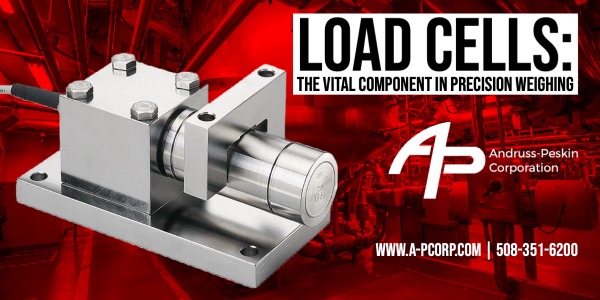A load cell is a transducer or a sensor that converts force into an electrical signal. In industrial weighing applications, it's a critical and core component used to measure weight or force.
The most commonly used types of load cells in industrial applications are strain gauge load cells, which work on the principle of piezoresistance. When a load or force is applied to the strain gauge, it deforms or changes shape. This change in shape causes a measurable change in the electrical resistance. The change in resistance is proportional to the load applied, meaning the more significant the load, the larger the change in resistance.
This change in resistance is usually minimal, so it's converted into an electrical signal using a Wheatstone bridge configuration. The signal is then amplified and converted into a digital form by an analog-to-digital converter. This digital signal can be interpreted and displayed on a readout device, such as a digital display or a computer.
In industrial weighing applications, load cells are ubiquitous, with applications including weighing scales, industrial scales, batching scales, and load-testing machines. They can measure loads ranging from tiny (a few grams) to large (hundreds of tons).
Load cells are robust and reliable, capable of withstanding harsh industrial environments. They can handle extreme temperatures, high levels of vibration, and other challenging conditions. Additionally, they offer high precision and accuracy, which are critical in many industrial applications.
In addition to their use in weighing, load cells measure tension, compression, and shear forces, making them versatile tools in many industrial processes. They play a significant role in quality, inventory, and process control in various industries, including manufacturing, agriculture, food processing, pulp & paper, power generation, transportation, and construction.
BLH Nobel is a leading weighing and force measurement solution provider, including load cells, weighing modules, and process control equipment. The company is renowned for delivering precision, reliability, and durability, particularly in harsh industrial environments.
KIS Weigh Modules, adeptly deployed on dynamic process vessels amidst harsh, sanitation-intensive areas, have mastered the art of thriving amidst grime and grit. Their performance remains uncompromised and exceptional, even in the most challenging conditions riddled with corrosive acids, potent industrial cleaning agents, acidic vapors, and abrasive granulated powders.
Part of the remarkable performance of the BLH Nobel KIS is its ingenious cylindrical design. KIS beams can be maneuvered within the module's infrastructure, aligning precisely with the direction of the applied weight. The modules feature cylindrical, electro-polished stainless steel, forming an almost friction-free surface, allowing the module yoke to glide effortlessly during thermal expansion and contraction periods.
